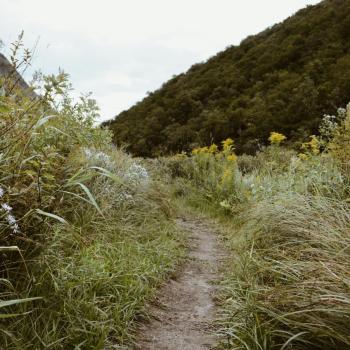
One of the most prominent heresies of contemporary Christianity is the prosperity gospel, which teaches that God will give you financial rewards if you follow him correctly, including giving money to preachers of the prosperity gospel.
This teaching grew out of Kenneth Hagin’s Word of Faith movement, with its belief that you can “name it and claim it”; that is, tell God what you want, and if you have enough faith that you’ll get it, you will. This belief was picked up by other kinds of Pentecostals. And it really took off when it went viral with popular television preachers.
But has the prosperity gospel spread beyond those circles? Evidently so, according to a study by the Southern Baptist agency LifeWay Research. Below is an excerpt from the report, but you can download the whole study at the link
From Bob Smietana, Most Churchgoers Say God Wants Them to Prosper Financially:
LifeWay Research found 38 percent of Protestant churchgoers agree with the statement, “My church teaches that if I give more money to my church and charities, God will bless me in return.” Fifty-seven percent disagree, including 40 percent who strongly disagree. Five percent are not sure.
Pentecostal and Assemblies of God churchgoers (53 percent) are most likely to agree. Churchgoers with evangelical beliefs (41 percent) are more likely to agree than those without evangelical beliefs (35 percent).
African-American (51 percent) and Hispanic churchgoers (43 percent) are more likely to agree than white churchgoers (32 percent).
Even if they don’t see a direct link between offerings and blessings, many churchgoers say God wants them to do well.
Sixty-nine percent agree with the statement, “God wants me to prosper financially.” Twenty percent disagree. Ten percent are not sure.
The more people go to church, the more likely they are to think God wants them to do well. Among those who attend at least once a week, 71 percent say God wants them to prosper financially. That drops to 56 percent for those who go to church once or twice a month.
Churchgoers who have evangelical beliefs (75 percent) are more likely to agree God wants them to prosper than those without evangelical beliefs (63 percent). Pentecostal and Assemblies of God (80 percent), Baptist (74 percent), non-denominational (67 percent) and Methodist churchgoers (65 percent) are among the most likely to agree.
Lutherans, however, are more skeptical. Just under half (49 percent) say God wants them to prosper financially.
[Keep reading. . . ]
Yes, Lutherans would be.
Read this comparison between the prosperity gospel and Luther’s Theology of the Cross.
And read this series that we posted about the Theology of the Cross based on the scholarship of Carl Trueman: Definition #1, Power & Language #2, The Gospel #3, Good Works & Vocation #4, Suffering #5, The Problem of Evil #6.
Illustration by kalhh via Pixabay, CC0, Creative Commons

















